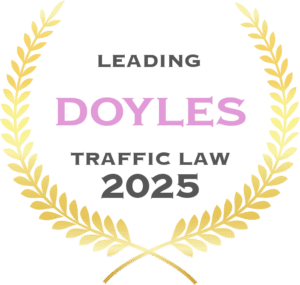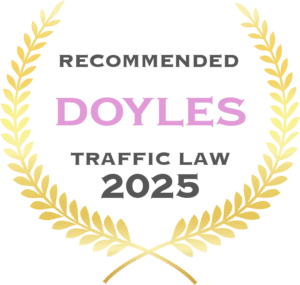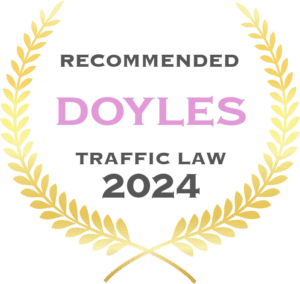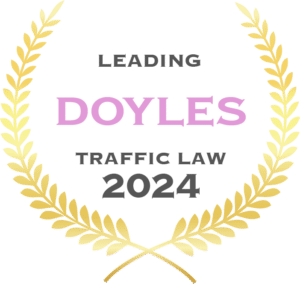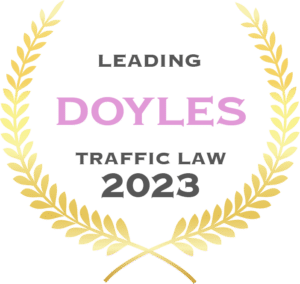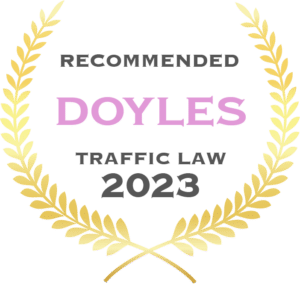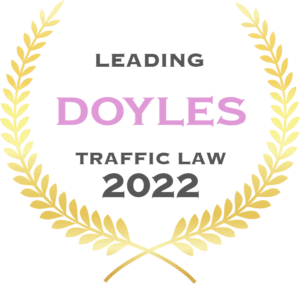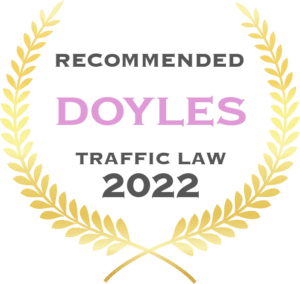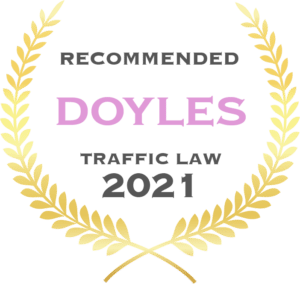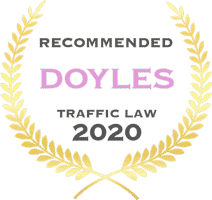Traffic Law
Armstrong Legal has a dedicated and experienced team of specialist traffic lawyers which is are committed to dealing with all aspects of traffic law. Traffic law can be complex and involves a number of different pieces of legislation. It is important to find a lawyer who has a complete understanding of traffic laws and the sentencing regime that applies as well as how traffic matters are dealt with by the courts.
Traffic law is a state- and territory-based area of law and the road rules, offences, penalties, appeal procedures and mandatory sentencing regimes that apply differ between different jurisdictions. The key pieces of legislation that govern traffic law in each state and territory ar listed below.
New South Wales traffic law
Some of the key pieces of traffic law legislation in New South Wales are:
- Road Transport Act 2013
- Road Rules 2014
- Fines Act 1986
- Road Transport (Vehicle Registration) Regulation 2017
- Road Transport (Driver Licensing) Regulation 2017
- Road Transport (General) Regulation 2013
- Heavy Vehicle National Law
Traffic law in Victoria
Some of the key pieces of traffic law legislation in Victoria are:
- Road Safety Act 1986
- Road Safety Road Rules 2017
- Fines Reform Act 2014
- Road Safety (Vehicles) Regulations 2021
- Road Safety (Driver) Regulations 2019
- Road Safety (General) Regulations 2019
- Heavy Vehicle National Law
Traffic law in WA
Some of the key pieces of traffic claw legislation in Western Australia are:
- Road Traffic Act 1971
- Road Traffic Code 2000
Traffic law in the NT
Some of the key pieces of traffic claw legislation in the Northern Territory are:
- Australian Road Rules 1999
- Traffic Regulations 1999
- Commercial Passenger (Road) Transport Act 1991
- Motor Vehicles Act 1949
Traffic law in Queensland
Some of the key pieces of traffic claw legislation in Queensland are:
- Transport Operations (Road Use Management) Act 1995
- Transport Operations (Road Use Management—Road Rules) Regulation 2009
- Transport Operations (Road Use Management—Driver Licensing) Regulation 2010
- More serious traffic offences are covered under the Criminal Code Act 1899
- Impoundment and forfeiture of vehicles are covered under the Police Powers & Responsibilities Act 2000
Traffic law in the ACT
Some of the key pieces of traffic claw legislation in the ACT are:
- Australian Road Rules 2012
- Road Transport (Safety & Traffic Management) Australian Road Rules Incorporation 2013 (No 1)
Traffic law in South Australia
Some of the key pieces of traffic claw legislation in South Australie are:
- Road Traffic Act 1961
- Regulations made under the Act
- Australian Road Rules
- Motor Vehicles Act 1959
Traffic law in Tasmania
Some of the key pieces of traffic claw legislation in Tasmania are:
• Road Rules 2019
• Vehicle and Traffic Act 1999
• Road Safety (Alcohol and Drugs) Act 1970
• Traffic Act 1925
• Motor Accidents (Liabilities and Compensation) Act 1973
• Criminal Code Act 1924
• Civil Liability Act 2002 and common law duty of care.
Why Armstrong Legal?
At Armstrong Legal, we understand that traffic offences can have far-reaching consequences not limited to a loss of licence. Our experienced team of lawyers can assist you with any traffic matter including (but not limited to):
- Speeding offences
- Road rage, careless or dangerous or menacing driving, and negligent driving offences (including or not including injuries/death)
- Drink driving offences, including alcohol interlock offences
- Drug driving offences
- Drive whilst suspended, disqualified or unlicensed
- Use mobile phone whilst driving offences and other demerit point offences
- Offences in breach of conditions on your driver’s licence
- Contesting traffic infringements through Fines Victoria, RMS NSW, and the Courts
- Offences involving heavy vehicles and drivers of them
If you are like many other drivers who have received traffic tickets, you may feel this is a minor annoyance that should be dealt with quickly and painlessly without retaining a lawyer. You may believe that the best way to deal with a speeding ticket is to simply pay it and forget about it.
However, there may be more to consider, such as:
- How might a conviction for a traffic offence affect my driving record and insurance rates?
- How might a disqualification affect my employment and people who rely on me to have a valid driver’s licence?
- How might a conviction affect my employment?
- How might a conviction affect my visa or application for Citizenship?
- Would I get a better result if I hired a traffic lawyer? Would it be easier for me if I had a lawyer represent me with the aim of getting the best possible outcome?
Call us on 1300 038 223 to learn how we can help you pursue a favourable outcome after you have received a driving infringement or court attendance notice.
Court elections, licence appeals and payment of penalty notices
Obtaining legal advice before a decision is made regarding filing a court election or licence appeal is very important. Once a court election or licence appeal is filed, the application cannot be withdrawn later. Similarly, obtaining advice before you pay a Penalty Notice is also very important. By paying a Penalty Notice, you are forfeiting your right to dispute the allegation because the payment of the Penalty Notice is an admission of guilt. Therefore, talking to a lawyer before you pay a penalty notice and before you file any applications with the court can help prevent trouble down the road particularly if there are other better options available.
Our lawyers service clients throughout Australia and we regularly appear in metropolitan and regional courts for licence appeals, sentences, and defended hearings. Whether you have received an infringement notice and are considering making a court election, have been charged with serious traffic offences and granted bail or remanded in custody or are facing a licence suspension because of the accumulation of demerit points, our traffic lawyers are here to help you. Contact them today.


